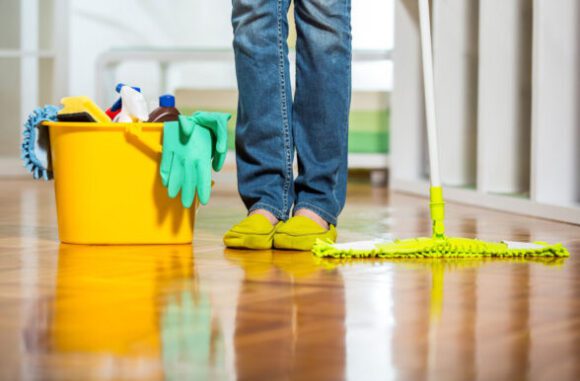
Charge for End of a Tenancy?
As the end of a tenancy period approaches, both tenants and landlords often find themselves navigating the intricacies of cleaning responsibilities and associated charges. One common question that arises is whether landlords have the authority to charge tenants for cleaning services upon the conclusion of their tenancy agreement. Let’s delve into this topic to shed light on the rights and obligations of both parties involved.
Clarifying Cleaning Responsibilities
Before addressing the issue of charges, it’s essential to establish a clear understanding of cleaning responsibilities within the context of a tenancy agreement. In most cases, tenants are expected to return the property in a clean and well-maintained condition, comparable to the state it was in at the beginning of the tenancy. This typically includes tasks such as:
- Vacuuming or sweeping floors
- Wiping down surfaces, including countertops and appliances
- Cleaning bathrooms, including toilets, sinks, and showers
- Removing any personal belongings or debris
- Addressing any damages beyond normal wear and tear
Landlords, on the other hand, are responsible for ensuring the property is habitable and compliant with health and safety standards. This may involve tasks such as repairing structural damage, addressing pest infestations, and maintaining essential utilities.
The Role of the Inventory Check-Out
At the conclusion of the tenancy agreement, landlords typically conduct an inventory check-out inspection to assess the condition of the property. This inspection serves as a crucial benchmark for determining whether any cleaning or repairs are necessary beyond normal wear and tear.
If the property is found to be in a significantly unclean or damaged state, landlords may opt to deduct the cost of cleaning services from the tenant’s security deposit. However, it’s important to note that any deductions must be reasonable and reflective of the actual cost incurred. Landlords cannot use the security deposit as a means to profit from cleaning charges.
Transparency and Documentation
To avoid disputes and ensure fairness, it’s imperative for landlords to maintain transparency throughout the cleaning charge process. This includes providing tenants with a detailed breakdown of any cleaning charges, including receipts or invoices from professional cleaning services if applicable.
Tenants, likewise, should be proactive in documenting the condition of the property upon vacating, potentially through photographs or written descriptions. This documentation can serve as evidence in the event of a dispute regarding cleaning charges.
Seeking Recourse for Unfair Charges for end of tenancy
In cases where tenants believe cleaning charges to be unjust or disproportionate, they have the right to contest these charges through formal channels. This may involve engaging in dispute resolution mechanisms outlined in the tenancy agreement or seeking mediation from relevant housing authorities or organizations.
FAQs:
Is my landlord allowed to charge for end of tenancy cleaning from my security deposit?
Landlords can withhold cleaning costs from your security deposit, but only if the property is left in a significantly unclean state beyond “normal wear and tear.” They must also be able to justify the cost with receipts or invoices.
What exactly is considered “normal wear and tear”?
Normal wear and tear refers to the gradual deterioration of a property due to everyday use. Examples include faded paint, worn carpets, or minor scuffs on walls. Damage beyond this, like holes in walls or appliance malfunctions, would likely be your responsibility.
My lease agreement doesn’t mention cleaning expectations. What do I do?
In most places, there’s an implied expectation of returning the unit reasonably clean. Check your local landlord-tenant laws for guidance.
The landlord wants to charge me for end of tenancy cleaning, but I think it’s unfair. What are my options?
If you believe the cleaning charges are unreasonable, you can contest them. Refer to your lease agreement for any dispute resolution procedures. You can also try contacting your local housing authority for mediation assistance.
How can I avoid cleaning charges altogether?
The best way to avoid cleaning charges is to thoroughly clean the property yourself before moving out. Take photos of the clean apartment as documentation in case of any disagreements.
Is it okay to hire a professional cleaning service instead of cleaning myself?
Absolutely! This can be a good option if you’re short on time or the apartment is particularly large. Just keep any receipts for your records in case the landlord asks for proof of cleaning.
What should I do during the move-out inspection with my landlord?
The move-out inspection is your chance to address any potential cleaning concerns before they become deductions from your security deposit. Walk through the property with your landlord pointing out any pre-existing damage you documented when you moved in. Pay close attention to their cleaning expectations and ask clarifying questions if needed.
Are there any cleaning tasks that are typically the landlord’s responsibility?
Yes, there are! Landlords are responsible for addressing major cleaning issues or repairs beyond normal wear and tear. This could include things like carpet steaming after pet residency, fixing leaky faucets, or patching large holes in walls.
Can I get my security deposit back even if I don’t clean the apartment myself?
Technically, yes. However, it’s highly unlikely. Landlords can deduct the reasonable cost of cleaning from your deposit if the apartment is left in an unreasonably dirty state. Cleaning yourself or hiring a service is the best way to ensure you get your full deposit back.
What if I disagree with the condition report filled out during the move-out inspection?
This can happen sometimes. If you disagree with the cleanliness assessment or any damage notations on the move-out report, be sure to dispute them in writing. Refer to your lease agreement for the proper procedure for contesting the report. Having documented proof of the condition of the apartment when you moved in (photos or a written description) can be very helpful in such situations. If your attempts to resolve the dispute directly with the landlord fail, you may need to seek mediation assistance from your local housing authority or pursue the matter through small claims court.
Conclusion:
In summary, while landlords do have the authority to charge for cleaning at the end of a tenancy, such charges must be reasonable, proportionate, and well-documented. By upholding transparency, maintaining clear communication, and adhering to the terms of the tenancy agreement, both tenants and landlords can navigate the issue of cleaning charges with fairness and integrity, ultimately fostering positive landlord-tenant relationships.
Recent Posts
Step by Step Guide to Selling Clothes Online in Pakistan
Paras Quartier: Luxury 4 BHK Apartments in Gwal Pahari, Gurgaon
Understanding the Challenges of Communicating with Seniors Living with Dementia
All Categories
- Apps
- Asian Games
- Auto
- Banking
- Beauty
- Blog
- Cricket
- Cricket
- Cryptocurrency
- Economy
- Education
- Fashion
- Fitness Zone
- Football News
- Gadgets
- Health
- Industry
- Interviews
- IPL
- Job & Feed
- Life Style
- Markets
- News
- News
- Other Sports News
- Restaurant
- Sports
- Stock Market News
- Tech News
- Technology
- Technology
- Top Stories
- Tours & Travel
- Travel
- Uncategorized
- World



